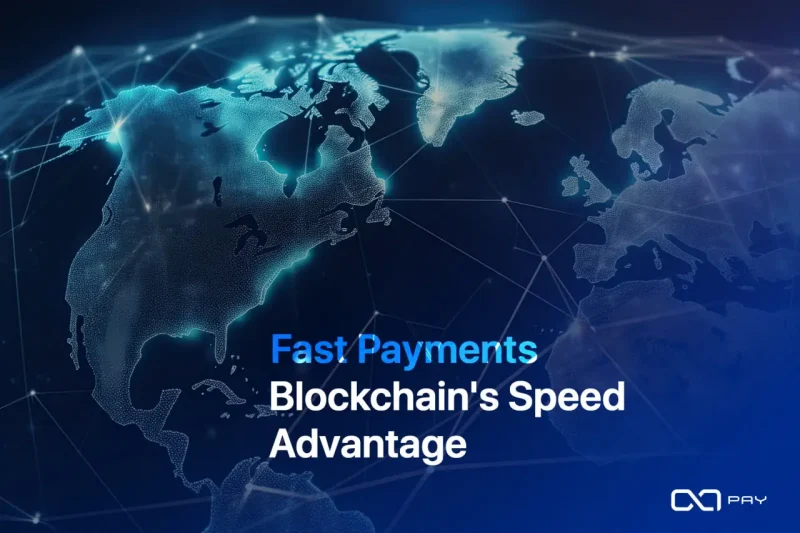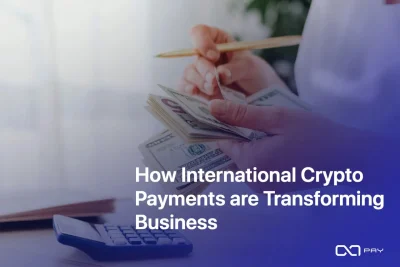Tired of slow payment processing holding your business back? In today’s fast-paced world, transaction speed is critical to success. Blockchain technology, best known for its role in cryptocurrencies, offers a faster, more efficient alternative to traditional payment methods. This article explores how blockchain enables fast payments, compares it to conventional systems, and reveals the significant impact it can have on your business operations.
How Blockchain Speeds Up Transactions
Blockchain technology streamlines transactions by eliminating many of the bureaucratic hurdles inherent in traditional financial systems. In a blockchain network, transactions are processed by a distributed network of nodes, which can validate transactions independently of central authorities. This decentralization means that transactions can be processed 24/7, without delays typically caused by banking hours or manual processing.
Comparison with Traditional Payment Methods
Traditional payment systems involve several intermediaries, such as banks and clearinghouses. These intermediaries can significantly slow down transaction processing times, especially for international transfers. Traditional methods also rely on working hours and bank staff availability. This dependence leads to delays that can stretch from a few days to over a week.
Blockchain technology, on the other hand, enables direct transactions between parties. It effectively eliminates the need for intermediaries. This speeds up the process, often completing transactions within minutes. It also reduces potential points of failure and bottlenecks. By bypassing traditional banking channels, blockchain provides a streamlined, efficient alternative that operates around the clock. This makes it particularly advantageous for businesses engaged in global commerce.
Technological Factors Influencing Transaction Speed in Blockchain
Several technological factors contribute to the speed of blockchain transactions:
Consensus Mechanisms:
Unlike traditional systems, blockchain uses various consensus mechanisms, like Proof of Work (PoW) or Proof of Stake (PoS), to validate transactions. These mechanisms operate much faster than the manual or semi-automated verification processes used in traditional banking.
Network Efficiency:
The efficiency of a blockchain network, including the speed at which nodes can communicate, also affects transaction speeds. Advances in network technology and protocols can significantly reduce transaction times.
Scalability Solutions:
Technologies like Lightning Networks for Bitcoin and sharding for Ethereum are designed to increase blockchain transaction throughput. These innovations further enhance transaction speed.
Impact of Faster Blockchain Transactions on Business
The rapid processing capabilities of blockchain technology significantly enhance both the efficiency and competitiveness of business operations:
Improved Cash Flow and Operational Efficiency:
Faster transactions enable quicker access to funds. This is crucial for businesses operating with tight margins or those needing efficient cash flow management. Faster access not only improves capital utilization but also reduces administrative overhead. It allows businesses to execute and confirm financial transactions more swiftly and effectively.
Enhanced Customer Experience:
In a market where consumers increasingly expect instant transactions, businesses that leverage blockchain’s speed can offer a seamless payment experience. This not only boosts customer satisfaction but also fosters loyalty by meeting modern expectations for quick service.
Streamlined Supply Chain Management:
Blockchain expedites payments to suppliers and settlements with logistics partners, which smooths out supply chain operations. This reduction in transaction times enhances the reliability of supply chains, minimizes downtime, and ensures a more consistent flow of goods and services.
Competitive Advantage and Cost Savings:
By eliminating intermediaries and speeding up transaction times, businesses can significantly reduce transaction fees and other associated costs. This provides a cost advantage and positions businesses at the forefront of their industry. It’s especially beneficial in sectors where transaction speed is a critical competitive factor, such as online retail or financial services.
Security and Transparency:
Despite the increase in speed, blockchain transactions maintain their inherent security and transparency. The technology’s immutable nature ensures that each transaction is securely recorded and easily auditable. This helps prevent fraud and errors, increasing trust among all parties involved.
Leveraging these advantages, businesses can boost operations and deliver superior customer service. This positions them as modern, efficient, and customer-focused. As blockchain evolves, its impact on business speed and efficiency will only grow.
Empowering SMEs with Fast Blockchain Transactions
Blockchain drastically reduces the time and cost of international payments. This allows small and medium-sized enterprises (SMEs) to enter global markets with ease. This advantage enables SMEs to compete with larger corporations. By leveraging blockchain’s seamless, low-cost transaction framework, SMEs can potentially increase market share and operational efficiency.
Facilitating Microtransactions with Fast Blockchain Processing
Blockchain supports economical, high-speed transactions that are ideal for microtransactions. This enables businesses to implement innovative pricing strategies, such as pay-per-use or subscription models, with minimal overhead. This functionality is especially beneficial for digital content creators and platforms that rely on small, incremental payments. It enhances revenue streams and boosts consumer engagement.
Transforming the Gig Economy with Speedy Blockchain Payments
Blockchain technology revolutionizes the gig economy by enabling immediate payments. In turn, this eliminates the traditional wait times associated with paycheck processing. As a result, immediate payments help freelancers and contractors manage their finances more effectively. This, in turn, improves their job satisfaction and financial security, ultimately making gig work a more viable and attractive option.
Promoting Financial Inclusion with Quick Blockchain Access
Blockchain provides a vital financial access point for underserved populations, especially in areas with limited or no banking infrastructure. More importantly, its ability to facilitate immediate, secure transactions without traditional banking requirements helps lower barriers to financial services. Consequently, this fosters greater economic participation and empowers unbanked or underbanked communities.
Leveraging OxaPay for Fast, Secure Blockchain Payments
If your business is ready to take advantage of blockchain’s speed, integrating a reliable payment processor is key. OxaPay payment processor is designed to streamline blockchain payments, making it easy for businesses to offer fast, secure, and cost-effective transactions.
OxaPay enables businesses to process payments quickly by leveraging blockchain’s near-instant transaction capabilities, which is ideal for global and frequent payments. Additionally, OxaPay supports a wide range of cryptocurrencies, including Bitcoin, Ethereum, and stablecoins like USDT, thereby offering flexible payment options for customers. Furthermore, the setup process is simplified with seamless integration through Crypto payment APIs, plugins for platforms like WooCommerce and WHMCS, and customizable payment links. Moreover, enhanced security features, such as Two-Factor Authentication (2FA) and IP filtering, help ensure transactions remain secure. As a result, businesses gain a competitive edge in customer satisfaction.
Conclusion
Blockchain technology offers businesses a fast, efficient, and secure way to handle financial transactions. By integrating solutions OxaPay, companies can leverage blockchain’s speed advantage with minimal effort, ensuring quick and secure payments. As the technology evolves, blockchain will continue to provide businesses with a competitive edge in delivering faster, more efficient services, making it an ideal choice for modern businesses.




